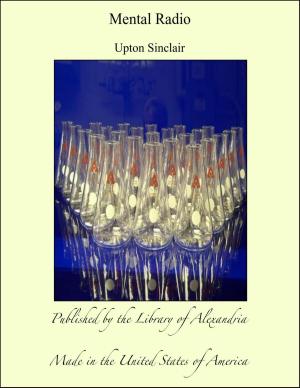Our Little Roumanian Cousin
Nonfiction, Religion & Spirituality, New Age, History, Fiction & Literature| Author: | Clara Vostrovsky Winlow | ISBN: | 9781465583796 |
| Publisher: | Library of Alexandria | Publication: | March 8, 2015 |
| Imprint: | Language: | English |
| Author: | Clara Vostrovsky Winlow |
| ISBN: | 9781465583796 |
| Publisher: | Library of Alexandria |
| Publication: | March 8, 2015 |
| Imprint: | |
| Language: | English |
In Southern Europe are a number of comparatively small countries known as the Balkan States, which remind one very much of quarrelsome children whose troubles have to be straightened out by older brothers and sisters. Many years ago there were more independent and partially independent states than now. Two of these little principalities called Walachia and Moldavia found that they could better protect themselves from their neighbors if they stood together. So they combined under one government, and the present country of Roumania was formed in 1857. In its native form the name of this country was "Romania," representing the claim of the inhabitants to descent from the Roman legions that colonized the country. These colonists, who called themselves "Romani," or "Rumeni," came from the Carpathian lands and the present Transylvania in the early Middle Ages. When once started, Roumania grew quite strong as a state. The people wanted to learn, and improve their condition, and there is no better example of this than their farming, for this country has become one of the greatest grain exporting countries in Europe. This was done, for one thing, by giving up their old-fashioned wooden plows, which just scratched the surface of the ground, and using modern steel plows from other countries which turned the ground over, just as our plows do. The Roumanian men and women are strong and sturdy, and the men are noted for their bravery and hardiness. So, among the Roumanian children, we find hardy, manly little boys and cheerful, if serious-minded, little girls. However, they like to play, just as do all of our little foreign cousins. This little book tells about their everyday games and pastimes, how they live, and how they dress. The brave fathers and brothers of our little Roumanian cousins took their places in the battle line to defend their homes in the great war that is now being fought in Europe. No one knows what the outcome of this terrible struggle will be. Will Roumania be destroyed, or will she emerge a greater and more powerful country, standing for liberty and justice? Time only will tell.
In Southern Europe are a number of comparatively small countries known as the Balkan States, which remind one very much of quarrelsome children whose troubles have to be straightened out by older brothers and sisters. Many years ago there were more independent and partially independent states than now. Two of these little principalities called Walachia and Moldavia found that they could better protect themselves from their neighbors if they stood together. So they combined under one government, and the present country of Roumania was formed in 1857. In its native form the name of this country was "Romania," representing the claim of the inhabitants to descent from the Roman legions that colonized the country. These colonists, who called themselves "Romani," or "Rumeni," came from the Carpathian lands and the present Transylvania in the early Middle Ages. When once started, Roumania grew quite strong as a state. The people wanted to learn, and improve their condition, and there is no better example of this than their farming, for this country has become one of the greatest grain exporting countries in Europe. This was done, for one thing, by giving up their old-fashioned wooden plows, which just scratched the surface of the ground, and using modern steel plows from other countries which turned the ground over, just as our plows do. The Roumanian men and women are strong and sturdy, and the men are noted for their bravery and hardiness. So, among the Roumanian children, we find hardy, manly little boys and cheerful, if serious-minded, little girls. However, they like to play, just as do all of our little foreign cousins. This little book tells about their everyday games and pastimes, how they live, and how they dress. The brave fathers and brothers of our little Roumanian cousins took their places in the battle line to defend their homes in the great war that is now being fought in Europe. No one knows what the outcome of this terrible struggle will be. Will Roumania be destroyed, or will she emerge a greater and more powerful country, standing for liberty and justice? Time only will tell.















